
by Editor | Aug 5, 2024 | News
On August 1, 2024, Governor Michael Dukakis and leaders of the Boston Global Forum – CEO Nguyen Anh Tuan, Board Member Professor David Silbersweig, and Chief Editor Minh Nguyen met with Amma, the 2023 World Leader for Peace and Security Award recipient, in Marlborough, Massachusetts. As part of her US trip, Amma and BGF leaders engaged in an hour-long conversation on compassion, and the relationships between the spiritual and the material. Governor Dukakis and Nguyen Anh Tuan also discussed Amma’s role as the Spiritual Leader in the Indo-Pacific Spark Initiative, a partnership between BGF and the Wilson Center. Known for her humanitarian and spiritual leadership, Amma can inspire mutual understanding, love, and compassion among the people of the US, Japan, India, Vietnam, and the broader Indo-Pacific region. She can deliver messages of love and compassion at conferences, with a focus on fostering these values in the US, Japan, India, and Vietnam. The Boston Global Forum and Wilson Center will disseminate her talks and messages, highlighting her esteemed mission.
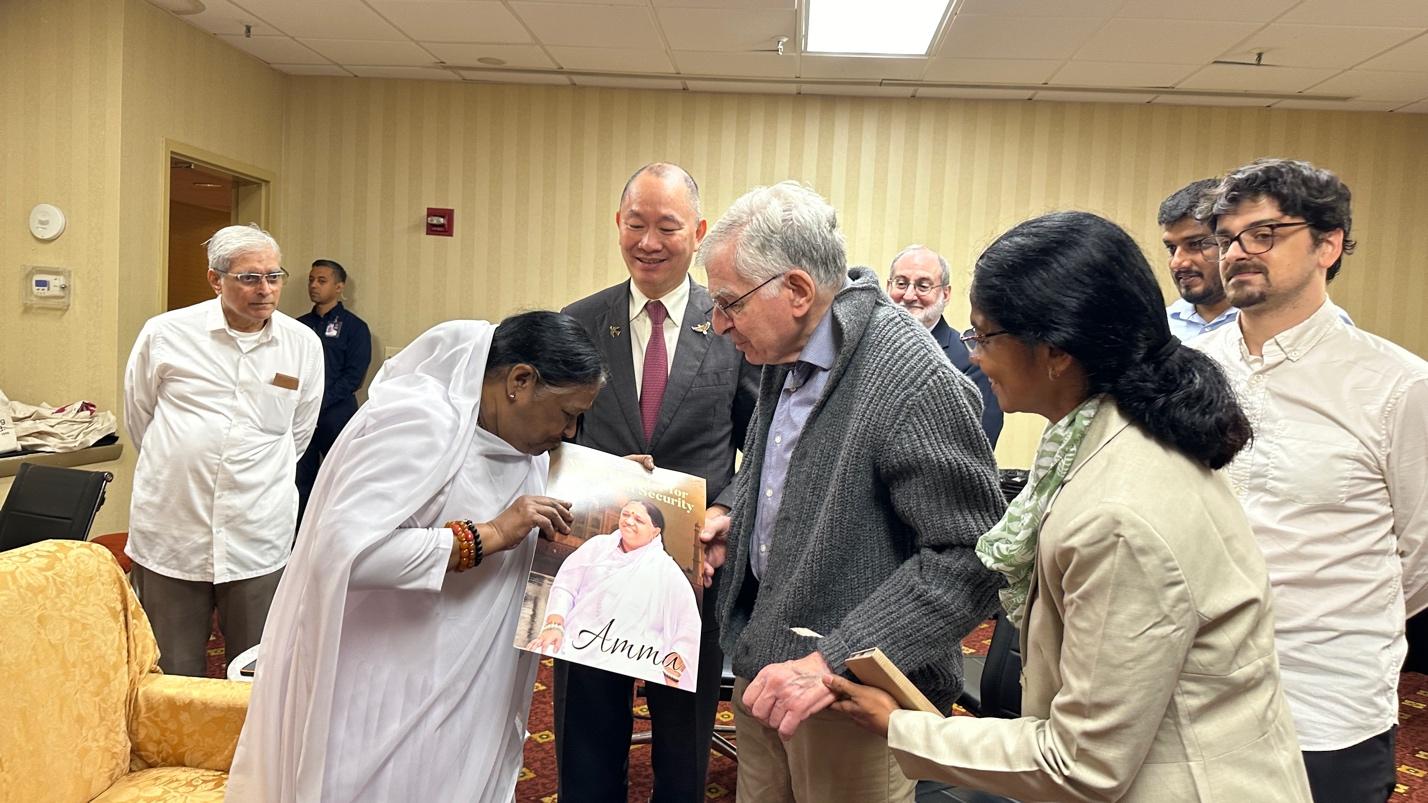
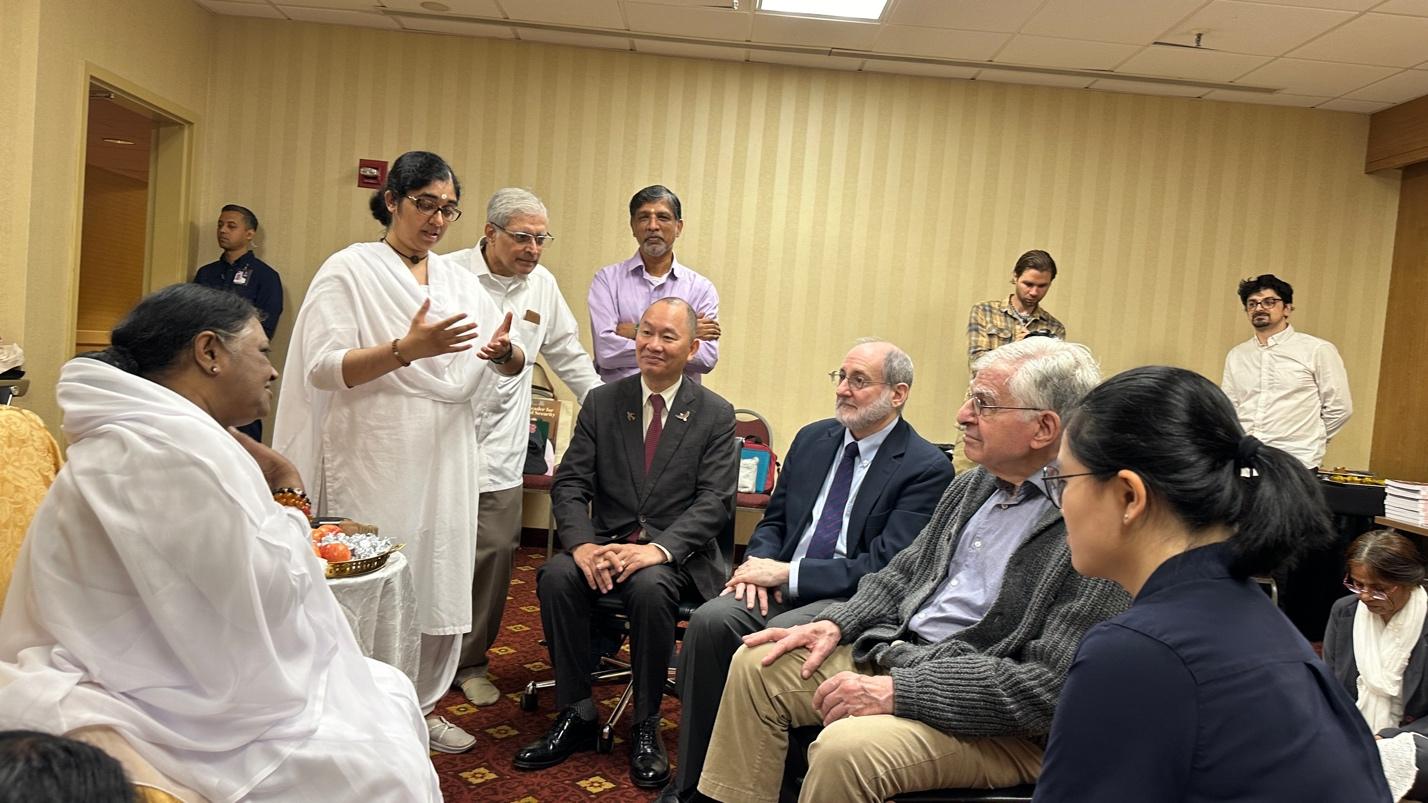
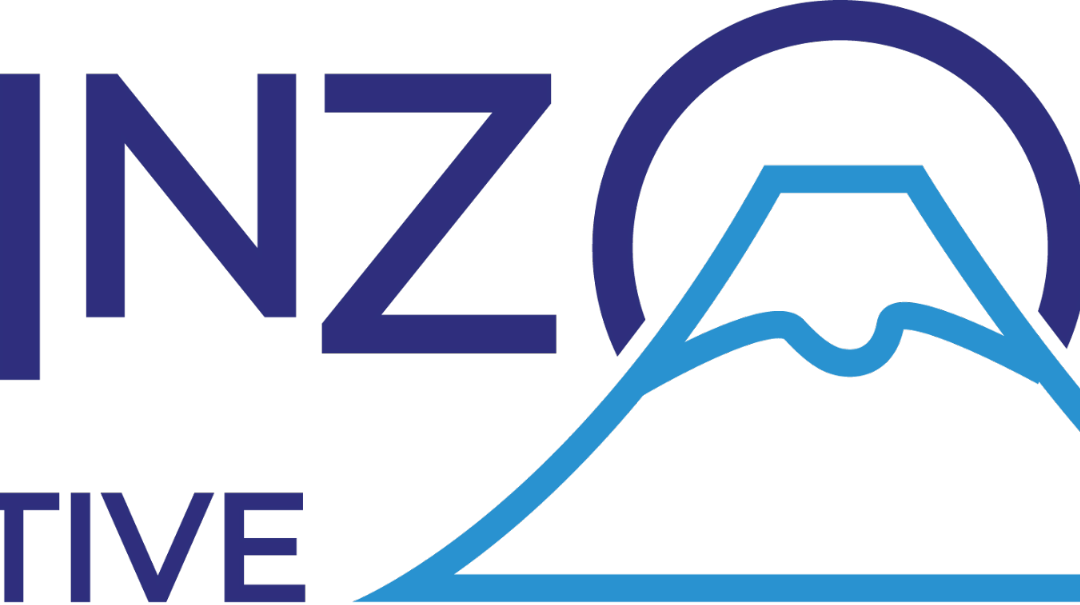
by Editor | Aug 5, 2024 | News
The Boston Global Forum’s Shinzo Abe Initiative for Peace and Security aims to foster connections among businesses and people in the US, Japan, India, and Taiwan. This initiative seeks to create an AI public for the people in these regions, supporting an innovative economy, the ecosystem of AI and tech economy, and promoting peace. It focuses on connecting distinguished individuals from these countries for this mission, with former State Minister Yasuhide Nakayama bridging Japan and Taiwan. Emphasizing that people are the masters in the AI Age, the Shinzo Abe Initiative calls on distinguished figures to contribute to this prestigious mission.
To further this initiative, BGF will organize Shinzo Abe Roundtables for distinguished figures starting from September 2024. These roundtables will provide a platform for influential leaders to collaborate and share insights on leveraging AI for economic ecosystems and peace. The discussions will focus on developing strategies to enhance cooperation between the US, Japan, India, and Taiwan, and to build a robust ecosystem for innovation and security.
Participants will include top executives, policymakers, and thought leaders from various sectors, who will work together to create actionable plans and initiatives. The roundtables will also highlight the importance of ethical AI practices and the role of AI in addressing global challenges.
For more information and to participate in the Shinzo Abe Roundtables, please contact Minh Nguyen, Chief Editor, at [email protected]


by Editor | Jul 29, 2024 | News
This week has been a more mellow one, but that doesn’t mean that nothing happened. In fact, plenty happened in the Four Pillars space, but as these are small events or stories without an broad overarching theme like last week or the NATO summit. We have compiled them into a list for the audience to peruse, with notes and analysis to put it into the Four Pillars context.
Four Pillars, Ukraine, and Russia:
The Pillars continue to find some worrying issues with preparedness in the face of Russian aggression. Still, they were able to find money under the couch cushion to continue aiding Ukraine, the current shield of the continent against Russia. The longer-term view is that the Europe Pillar should be wary of Putin’s calculations – he is willing to take as long as he needs to achieve his revanchist ambition, and at any cost too – a mad ideologue is hard to reason with.
The Europe Pillar and the Hungary Problem:
Hungary, a member of the EU and NATO, continues to be a Fifth-Column in these organizations (that are vital to the Four Pillars), with quasi-dictator Viktor Orban making grand overtures to Putin and more recently, China, allowing the country to fester with Chinese police presence and be used as a launching pad for these adversaries of the Pillars. However, perhaps it would be best to still keep Hungary in these organizations instead of kicking them out, because that could allow Hungary to invite Chinese or Russian military presence in the heart of Europe. It would be best to keep them in, but at the furthest arm’s length possible. Similar to how Austria, whose intelligence structure had been thoroughly compromised by Russia, European countries should leave Hungary out of any information, technology, or intel sharing program. Furthermore, Brussels should reform the one–vote veto, as in its current state, Hungary has the power to exploit it to benefit Russia.
The Pillars and China in the Indo-Pacific:
A grouping of smaller news, but these should serve as a reminder of the main threat to the Pillars – the CCP and its quest for global hegemony. Soft influence by the CCP is already felt in the domestic scene of the Pillars, the brazen example being TikTok, and the Pillars would do well to guard against these potential vectors of demoralization and disinformation, in addition to the more militaristic and security-based build-ups that have been happening. Remember that each Pillar do not stand alone in this regional chess game against the PRC – the US, Japan, and India have great mutual interests here, and Europe has a stake too.

Minh Nguyen is the Chief Editor of the Boston Global Forum and a Shinzo Abe Initiative Fellow. She writes the Four Pillars column in the BGF Weekly newsletter.
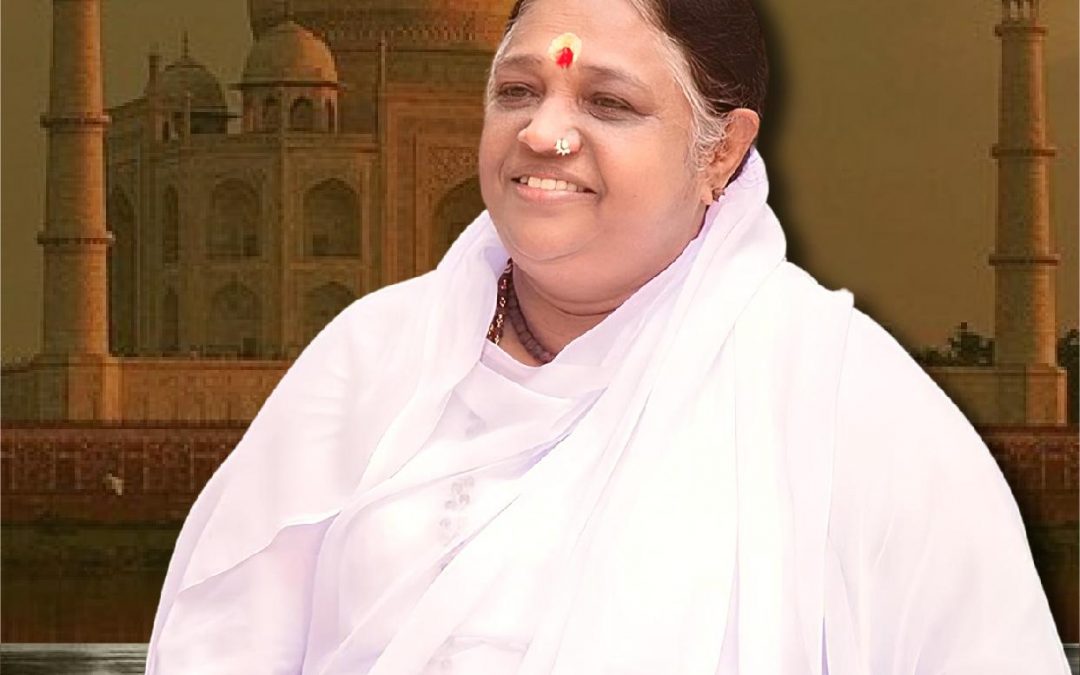
by Editor | Jul 29, 2024 | Event Updates, News
Amma, renowned humanitarian and spiritual leader, continues her tour in North America with a visit to Massachusetts and New England. Governor Michael Dukakis, Chair of Boston Global Forum, and BGF Board Members – CEO Nguyen Anh Tuan, Professors Alex Pentland and Thomas Patterson – will meet and discuss with Amma on August 1, 2024 in Marlborough, Massachusetts. BGF will present Amma with a special edition.

Read more about Amma’s visit and event on her website: https://us.amma.org/meeting-amma/north-america/newengland
July 31 – August 2
Best Western Royal Plaza and Trade Center
181 Boston Post Rd W
Marlborough, MA 01752
United States
From July 25-29: “In #Washington, DC, Amma lead prayers for world #peace. Said Brahmachari Chidanandamrita in a spiritual talk, ‘When our heart gets overwhelmed with #love, logic fails. I have often felt that there is only one quality that distinguishes Amma from us. If we can assimilate that one quality, we can also become Amma. Yes. We can all become Amma. That one quality we need to develop is unconditional love.’”
Amma’s programs in Washington conclude on July 29.


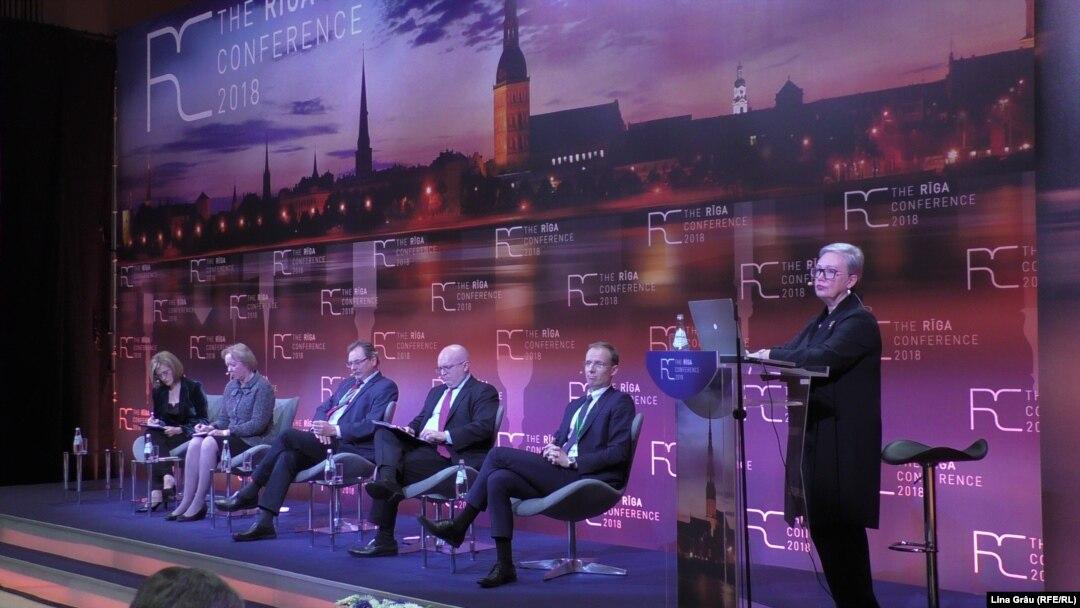
by Editor | Jul 29, 2024 | Global Alliance for Digital Governance
To revolutionize the fight against disinformation, a four-year innovation action, AI4Debunk, has been launched January 2024. Funded by the European Union (EU) through the Horizon Europe Programme, the project brings together an interdisciplinary consortium of 13 partner entities from eight countries towards a shared mission: to support trustworthy online activity by providing citizens with human-centered AI-powered tools. Professor Zaneta Ozolina, Representative of the Boston Global Forum in Riga has joined the AI4Debunk program.
Learn more about the project on its website: ai4debunk.eu
In recent years, the proliferation of disinformation has become a major issue across Europe. The communication during COVID-19 crisis and Russia’s invasion of Ukraine is ‘war-like’ as the EU has been engaged in the “infodemic” global battle of narratives. Geo-political component of “infodemic” are very challenging as foreign actors, in particular Russia and China, are very experienced in organising toxic disinformation campaigns, using various manipulating techniques and destructive narratives for “anti-EU” propaganda in their struggle for influence. The use of artificial intelligence (AI) solutions can serve as a powerful tool in debunking disinformation. Ursula von der Leyen, President of the European Commission, has said: “AI is already changing our everyday lives. And this is just the beginning. Used wisely and widely, AI promises huge benefits to our economy and society.”
Partners who will participate and are in charge of the successful implementation of AI4Debunk: University of Latvia (Latvia) – project coordinator, EURACTIV, Pilot4DEV, University of Mons (Belgium). Internews Ukraine (Ukraine), National Research Council of Italy, University of Florence (Italy), Barcelona Supercomputing Center (Spain), DOTSOFT (Greece), University of Galway, F6S Innovation (Ireland), University of Applied Sciences Utrecht, INNoVaTiVe POWER (the Netherlands).
Involving various stakeholders, from media professionals to software developers and AI experts, this new EU project takes a holistic approach to fighting disinformation through Human-AI collaboration. It will be validated with two case studies: Russian propaganda related to the war in Ukraine and manipulated content on climate change.
AI4Debunk aims to develop four human-centered AI-powered interfaces: a web plug-in, a collaborative platform, a smartphone app, and an Augmented Reality/Virtual Reality interface based on the first-of-its-kind open-source debunking API.
The plug-in will be designed for seamless integration with web browsers and social media platforms, delivering instant notifications to users when they encounter false content, regardless of the format. As for the collaborative platform (Disinfopedia), it will allow proactive users to report suspicious content, which will then be checked by human experts and potentially removed from circulation. The app, in turn, will enable people to detect disinformation in everyday life directly through their smartphone. Lastly, the AR/VR interface will provide guidelines on how to deal with disinformation in future AR/VR-based social media.
AI4Debunk’s interfaces cover different needs – from real-time analysis of multimodal content to community-driven reporting and immersive experiences. These will provide citizens with a comprehensive set of fact-checking resources to navigate the digital media landscape more consciously and make informed decisions. These interfaces will also be innovatively and playfully designed for educational purposes to help students become discerning consumers of information. By promoting transparency, accuracy, and responsible engagement with online platforms, AI4Debunk strives to foster critical thinking and reinforce the fabric of a healthy democracy.

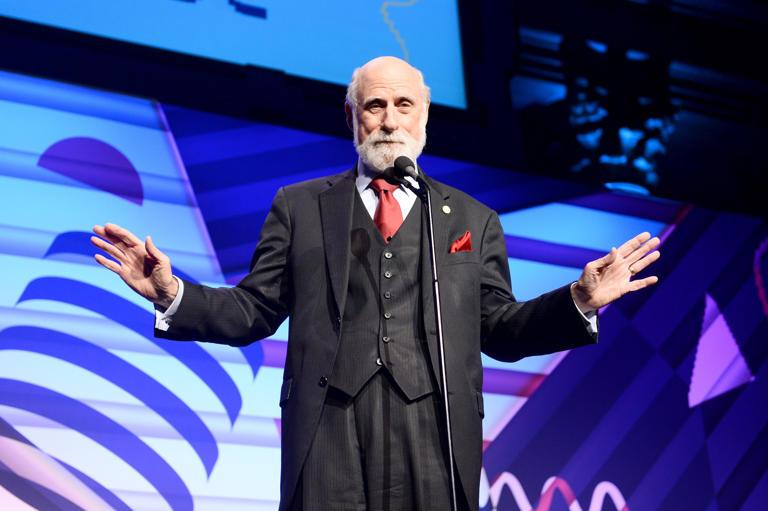
by Editor | Jul 29, 2024 | News
The internet is facing a range of threats that could imperil both the technology and the people who use it, according to the people who helped create it.
We are becoming increasingly reliant on a technology that is more fragile than we realise and we could be plunged into a “digital dark ages” that will leave us unable to access our own history, warned Vint Cerf, one of the “fathers of the internet” and recipient of the 2019 World Leader in AIWS Award.
The web is also becoming an increasingly central part of our life but that means “there are consequences when it doesn’t work as intended” or used by malicious people, he warned. As the internet becomes nearly ubiquitous, it has allowed people to use it for damaging purposes, such as ransomware, he warned.
“The consequences of [the increasing availability of the internet] are that it’s accessible to the general public, which it wasn’t in its early evolution,” he said. And the consequences of that are that some parts of the general public do not necessarily mean well, and so their access to the technologies enabling, in many ways, very constructive ways, but also in some very disruptive.”

https://www.independent.co.uk/tech/vint-cerf-father-internet-b2582067.html
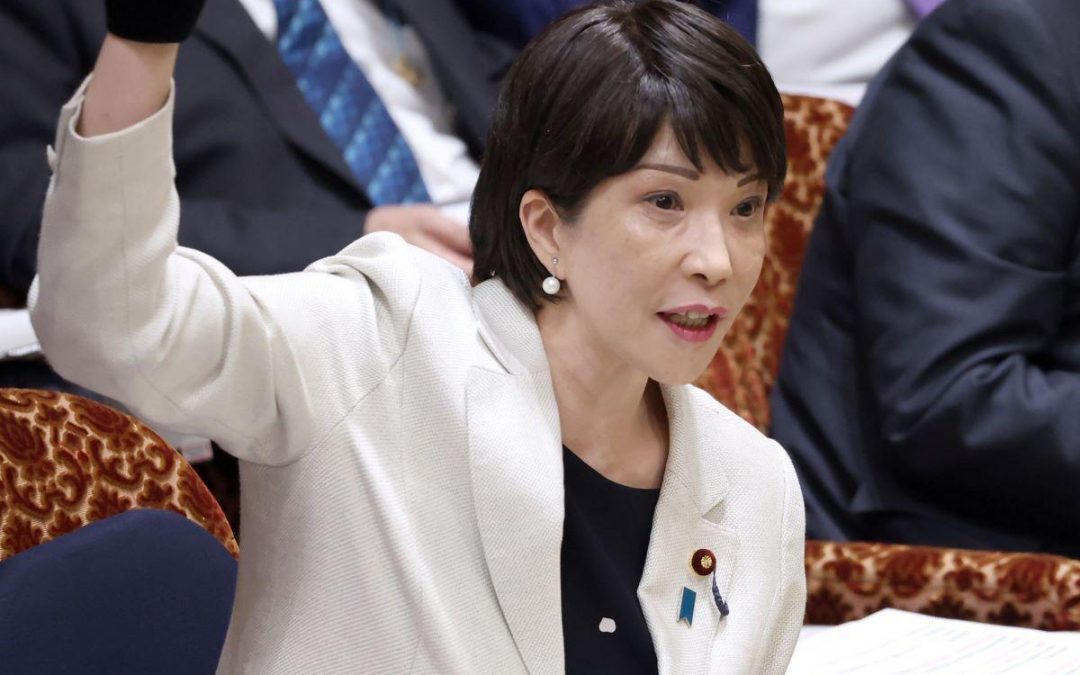
by Editor | Jul 29, 2024 | News
Takaichi’s book provides a detailed analysis of Japan’s newly established security clearance system and how it aids national and economic security.
In her latest book, Minister of Economic Security Sanae Takaichi explores Japan’s strategies for safeguarding critical information amid rising global threats. The work is titled Japan’s Economic Security: Protecting the Nation and Its People (Nihon no keizai anzen hoshō kokka kokumin o mamoru ōgonritsu, Asukashinsha, 2024). However, currently it is available only in Japanese.
Central to the book is Japan’s newly established security clearance system, introduced in June 2024. It enforces rigorous vetting for accessing classified national and economic data. Modeled on practices from G7 countries and Australia, the system includes thorough background checks as well as assessments to prevent information leaks.
In her book, Takaichi also highlights Japan’s initiatives in managing space debris and advancing fusion energy technology. She details Japan’s leadership in incorporating space debris management into the G7 agenda. In line with the aim of boosting Japan’s energy self-sufficiency, she further outlines the Fusion Energy Innovation strategy.
https://japan-forward.com/book-review-japans-economic-security-protecting-the-nation-and-its-people-by-sanae-takaichi/
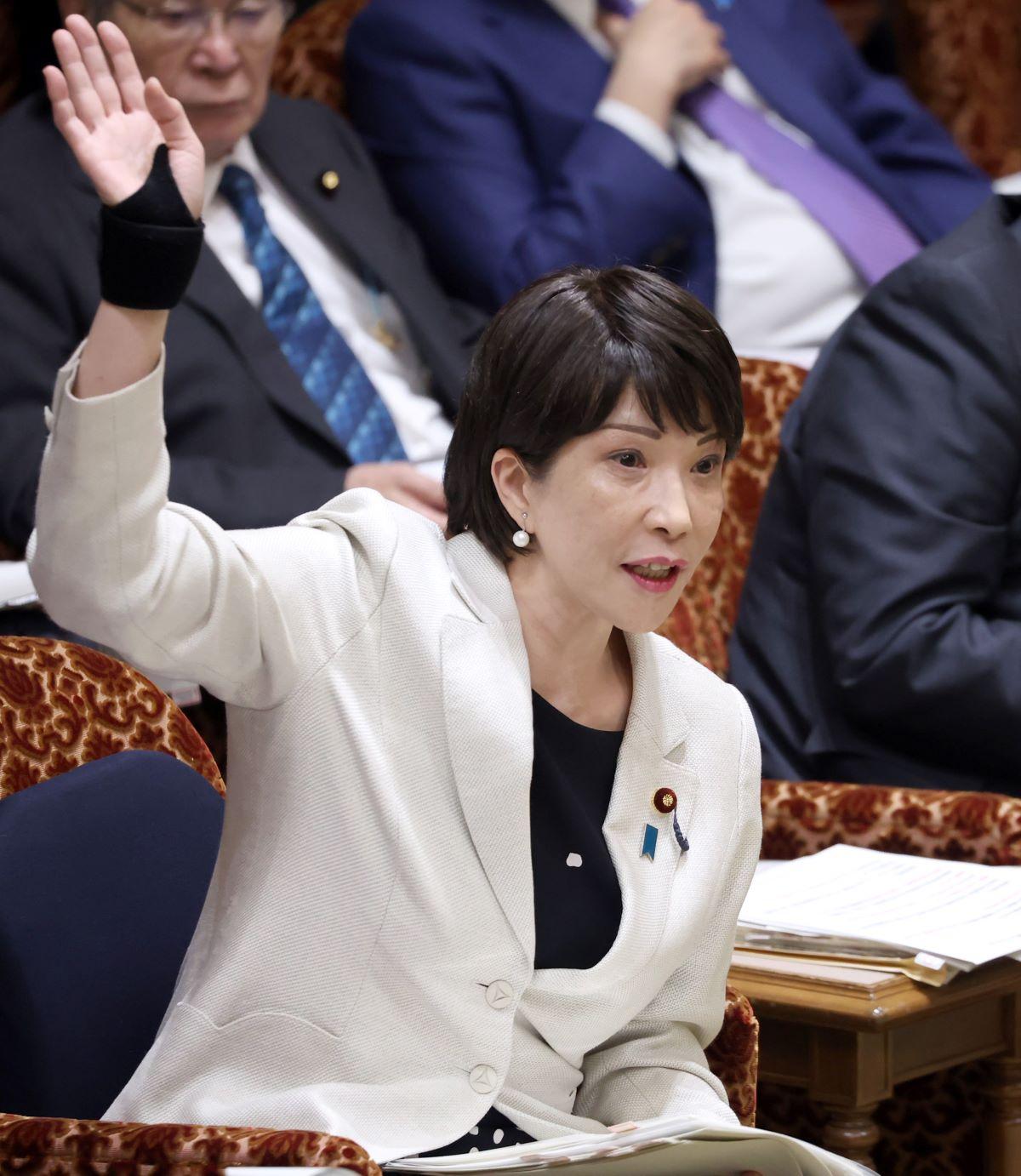

by Editor | Jul 22, 2024 | News
There are decades where weeks happen, and weeks where decades happen. THat is certainly true of the past couple of months in not just American issues, but the whole Four Pillars space as well.
In Europe, it is now formally official that Ursula von der Leyen, the 2020 World Peace and Security Award recipient, has been re-elected as president of the European Commission. This gives Europe a renewed strong hand of leadership, actively promoting the position of the EU and the continent as a major bloc and strengthening the unity of the bloc too. A strong Europe is a strong Pillar.
The main course this week is, of course, Biden’s decision to no longer seek reelection. He will be serving the rest of this term, and has chosen VP Kamala Harris as the heir-apparent to the nomination. Even though the past two months can be characterized by stubbornness, his administration and its foreign policy objectives have been critical to restoring normalcy and strengthening the alliance networks that one can now see taking shape in the Four Pillars. Policies such as the CHIPS Act, the renewed commitment to Japan, South Korea, and NATO, and the approach with India are important to the groundworks of the Four Pillars. We would like to thank his Cincinnatian decision and the frameworks set up during his term.
On the other side of the aisle, Trump has selected the junior Ohio Senator J.D. Vance as his running mate. Rather than a moderate pick, he instead has doubled down on American isolationism. Vance has openly expressed his contempt for Ukraine’s resistance against Russian invasion. Both of these men have also signaled willingness to throw the Pillars (Japan, India, Europe) and Taiwan under the bus vis-a-vis Chinese aggression. In other words, the implications of a Trump victory spells disaster for the Four Pillars’ mission in preserving and defending the rules-based order.
Hopefully, being unburdened by the weight of fear of China’s economic rise and growing political influence, the Four Pillars can imagine an alliance or platform to protect democracy, peace, and security in the Asia-Pacific and across the world.
Article of the week – Expanding AUKUS Pillar 2: An Inclusive Indo-Pacific Alliance Structure [Royal United Services Institute for Defence and Security Studies]

Minh Nguyen is the Chief Editor of the Boston Global Forum and a Shinzo Abe Initiative Fellow. She writes the Four Pillars column in the BGF Weekly newsletter.

by Editor | Jul 22, 2024 | Global Alliance for Digital Governance
The original article was published on WilmerHale.
The EU Artificial Intelligence (AI) Act was published in the Official Journal of the European Union on July 12, 2024, as “Regulation (EU) 2024/1689 of the European Parliament and of the Council of 13 June 2024 laying down harmonised rules on artificial intelligence.” Please see our earlier blog post for a general overview of the AI Act.
While the AI Act will generally apply starting on August 2, 2026, the exact milestones are quite nuanced and complex, with some provisions applying as early as February 2, 2025.
Below, we set out the key dates for the various operators, especially providers and deployers, as well as the dates by which the European Commission will have to prepare implementing acts, documentation and reports to assist the operators to ensure compliance with the AI Act.
—– 2024 —–
August 1, 2024
Entry into force of the AI Act (Article 113). This means that the AI Act becomes part of the EU legal order. It does not mean that the provisions of the AI Act are applicable.
November 2, 2024
By this date, Member States must have identified the public authorities or bodies that supervise or enforce obligations under EU law protecting fundamental rights, including the right to nondiscrimination, in relation to the use of high-risk AI systems referred to in Annex III of the AI Act (Article 77(2)).
—– 2025 —–
February 2, 2025
Chapters I and II will apply from this date (Article 113(a)). These include the general provisions (e.g., geographic scope, definitions) and the provisions on prohibited AI practices (see our client alert). Therefore, evaluating activities that might be considered “prohibited practices” under Article 5 of the AI Act should start as soon as possible.
The general obligation to ensure a sufficient level of AI literacy of staff under Article 4 of the AI Act will also apply from this date.
May 2, 2025
By this date, codes of practice for the implementation of general-purpose AI models and related obligations must be ready (Article 56(9)). These codes should support providers in achieving compliance with their duties relating to general-purpose AI models.
August 2, 2025
From this date, Chapter III, Section 4 (Notifying authorities and notified bodies), Chapter V (General-purpose AI models), Chapter VII (Governance) and Chapter XII (Penalties) will apply (except for Article 101, which deals with fines for providers of general-purpose AI models).
Chapter III, Section 4 deals with notifying authorities and notified bodies, which are essential for the establishment of conformity assessment bodies.
Chapter V contains the provisions related to general-purpose AI models introduced late in the legislative process; for example, the mandatory notification procedure for the provider (Article 52 (1)), documentation requirements (Article 53) and the appointment of an authorized representative (Article 54). Article 55 contains additional responsibilities focusing on the evaluation and mitigation of systemic risk and cyber and infrastructure security.
Chapter VII sets out the governance structure on the EU level, including the AI Office, the European Artificial Intelligence Board, the advisory forum and the scientific panel. On the Member State level, the competent authorities must be appointed by this date (Article 70(2)).
By the same date, the European Commission must finalize its guidance to facilitate compliance with the reporting obligations in case of serious incidents (Article 73(7)).
Chapter XII deals with penalties. This includes Article 99(3), which specifies the fines for noncompliance with prohibited AI practices referred to in Article 5. These fines can reach €35 million, or up to 7% of worldwide annual revenue, if the offender is an undertaking.
—– 2026 —–
February 2, 2026
By this date, the European Commission will issue implementing acts creating a template for high-risk AI providers’ post-market monitoring plans, which should serve as the basis for said monitoring system established by Article 72.
Similarly, the European Commission must, by this date, provide guidelines for the practical implementation of Article 6 concerning the classification of an AI system as high risk (Article 6(5)).
August 2, 2026
This is the default date for the provisions of the AI Act being applicable.
The obligations regarding high-risk AI systems will apply from this date, including risk and quality management systems, diligent data governance, technical documentation, recordkeeping, and transparency and information obligations.
Chapter IV addresses operators of AI systems directly interacting with humans, generative AI systems, and emotion recognition or biometric categorization systems, introducing disclosure and information responsibilities (see our client alert).
By this date, Member States must have implemented rules on penalties and other enforcement measures and notified the European Commission about them (Article 99).
At least one AI regulatory sandbox must be operational at a national level (Article 57(1)).
—– 2027 —–
August 2, 2027
This is the ultimate deadline for AI systems covered by existing harmonization legislation (Article 113(c)) and for providers of general-purpose AI models that have been placed on the market up to 12 months after August 1, 2024, to comply with the AI Act.



















